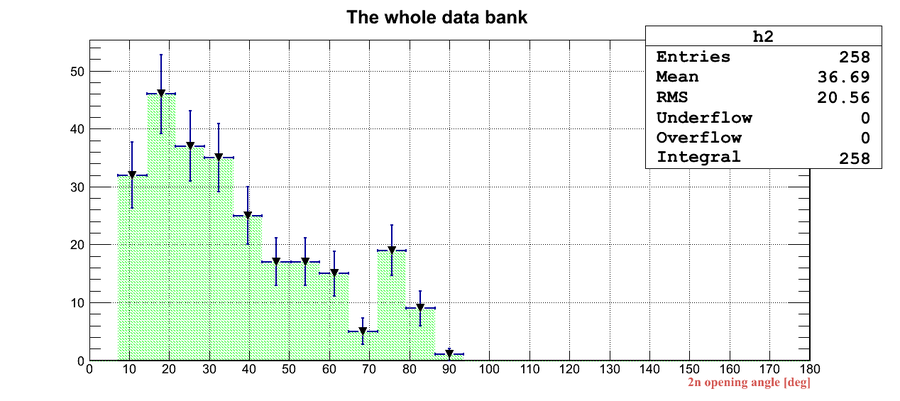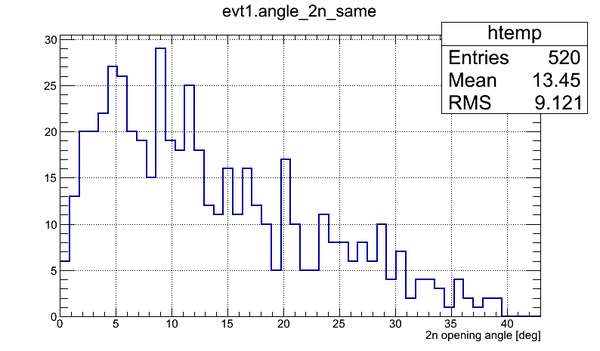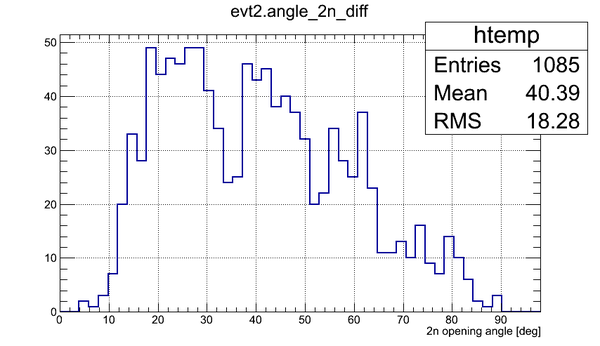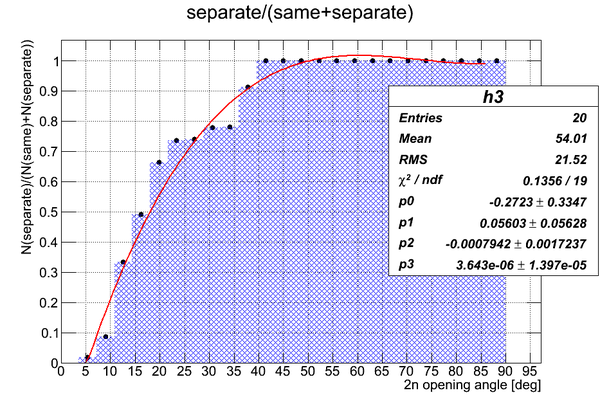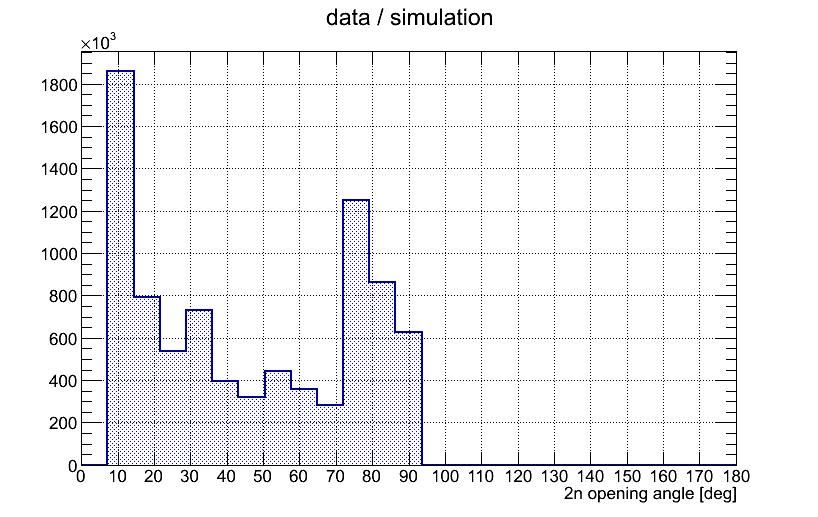2n opening angle
Experimental data
2n opening angle obtained after the processing of all the runs with thick uranium target is shown below:
The bin width (x-error) is 7.2 degrees, the total number of bins is 25. Statistical error (y-error) is presented for each bin.
At this stage there is no efficiency normalization involved in the calculation. The main goal is to show that we've got 258 neutrons in all the runs.
Simulation
GEANT4 was used to sample two neutrons isotropically, to track them and opening angle was observed for two cases when (1) two neutrons hit the same detector (N(same)) and (2) two neutrons hit two different detectors (N(different)). After that the plot of N(different)/(N(same)+N(different)) was made.
The total number of neutron pairs sampled was , emission of neutrons was in form isotropic point source. Geometry of the experiment was preserved.
The 2n opening angle for the case (1) is shown below:
The 2n opening angle for the case (2) is shown below:
It can be seen that the probability to hit two different detectors about twice larger than the probability to hit the same detector for the isotropic point source of neutrons.
The plot of N(different)/(N(same)+N(different)):
Hence, (A) in the experimental data we can not see neutron pairs with the opening angle less then ~5 degrees because they all are multi-hit data, (B) multi-hit data disappear at 2n opening angle above 40 degrees.
